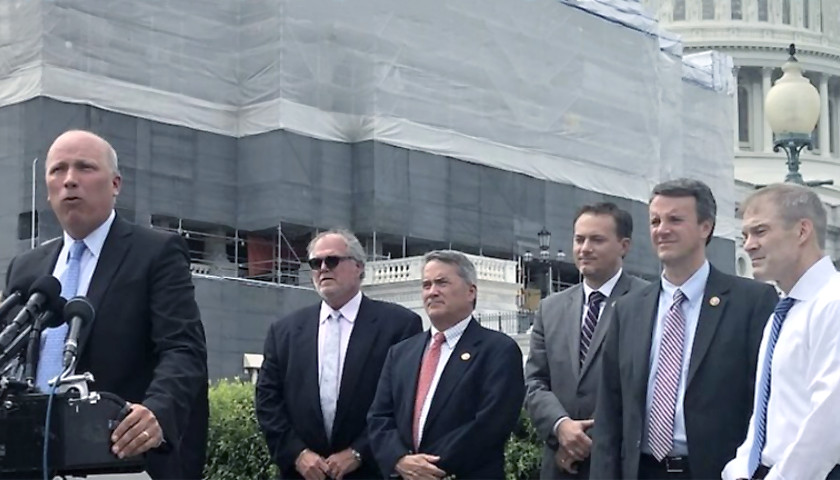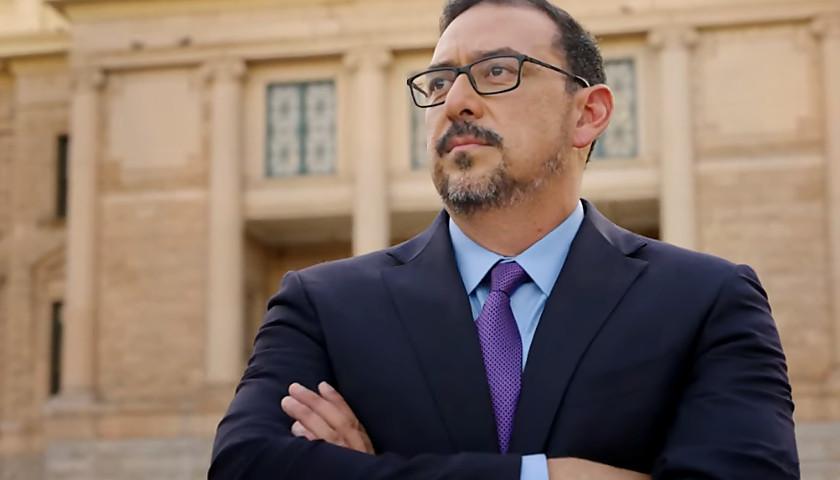by Rachel Bovard
People often question whether it’s still true that one man can make a difference in the modern Congress. This week, Representative Chip Roy (R-Texas) proved that it is.
Fed up with the House passing legislation on autopilot (that is, passing amendments and bills “unanimously” without recorded votes and no one in the chamber) and outraged that House Democrats have been blocking the Trump Administration’s request for border funding, Roy used the power he has as a member of Congress to force his will on the body: he objected.
Roy objected to unanimously passing amendments, to unanimously agreeing to procedural motions, and even to continuing House business altogether. He objected more than 100 times, forcing the House to take recorded votes on amendments as it processed spending bills that totaled well over $1 trillion.
Roy and his colleagues lined up on the House floor demanding that these spending bills include money to address both the security and humanitarian elements of the ongoing crisis at the border.
Predictably, they suffered the slings and arrows of their colleagues, many of whom had never taken this many roll call votes in a row. “Wow, who is this a—hole making me stay here and vote,” one congressman reportedly remarked. The Democrat Congressional Campaign Committee accused Roy of having a “tantrum.” Congressional reporters publicly griped about Roy’s tactics (congressional reporters apparently get upset when Congress does things that are reportable).
Attuned observers, however, recognized that Roy was following a long congressional tradition, thereby elevating himself into the select group of members with the guts and the brains to use procedural leverage to get what they want.
And it worked.
That Democrats were openly criticizing the status of detentions at the border while blocking the money to fix the problem was little known outside of the Beltway before Roy led his colleagues in forcing national attention to the issue.
With their abject hypocrisy in the spotlight, Democrats were forced to the negotiating table. Within days, Republican and Democrat negotiators in the Senate struck a deal to pass the legislation. Presumably, the House will follow.
The bill provides a little over $3 billion to shelter and care for unaccompanied children—specifically to address the overcrowding at shelters and humanitarian needs. According to the White House request, that money would have run out by year’s end.
The Senate legislation, however, does very little to fix the problem at hand. Much of the money merely manages what has become a chaotic flow of people. There are no changes to the asylum laws, no modification to legal parameters surrounding family detainment, and very little else in the way of border security.
Critically, the Department of Health and Human Services—the agency assigned with caring for the thousands of unaccompanied children crossing the border—would still be unable to share information about the children with Immigration and Customs Enforcement. (Predictably, Democrats had tried to make the bill even worse.)
In short, the bill does not resolve the border crisis. Far from it. It simply attempts to streamline the chaos.
Meanwhile, at the White House . . .
The Trump Administration, fed up with congressional inaction, announced this week that it would begin enforcing statutorily required deportations for those ordered to leave who have not.
According to statistics provided by the White House, “catch and release” (the practice where family units are taken into custody, released into the interior of the country, and told to show up later for an asylum hearing) has resulted in 207,000 families being released into the country since December 2018.
The latest Department of Justice statistics show that as of this month, close to 85 percent of the families who were given accelerated consideration due to family status, and full due process that included interpreters and access to legal counsel, still failed to show up for their required hearings. Per the law, they were given a deportation order in absentia.
Mark Morgan, the new head of Immigration and Customs Enforcement, put it this way,
We have a demographic that has had an enormous amount of due process. They’ve had access to attorneys. They’ve had access to interpreters. They’ve received a final order of removal from a judge. We’ve even sent them letters saying you’ve received an order, come to ICE, we’ll work with you, we’ll give you 30 days to get your affairs in order, and we’ll help you return to you your country. Those have been ignored. Those people in those categories over 90 percent haven’t showed up.
Without action from Congress, the administration is faced with doing what they can with the executive authority they have. They’re hoping that re-directing resources toward enforcement will help deter the massive waves of migrants.
In the annals of addressing the pressing situation at the border, this week was full of high drama, but short on results. Thanks to the colossal efforts of a single, freshman member however, Congress has at least taken a tiny step. The administration is making plans to enforce the law. The crisis, however, persists.
– – –
Rachel Bovard is senior director of policy at the Conservative Partnership Institute. Beginning in 2006, she served in both the House and Senate in various roles including as legislative director for Senator Rand Paul (R-Ky.) and policy director for the Senate Steering Committee under the successive chairmanships of Senator Pat Toomey (R-Penn.) and Senator Mike Lee (R-Utah), where she advised Committee members on strategy related to floor procedure and policy matters.
Photo “Rep. Chip Roy Applauded by Conservatives” by Chip Roy.





